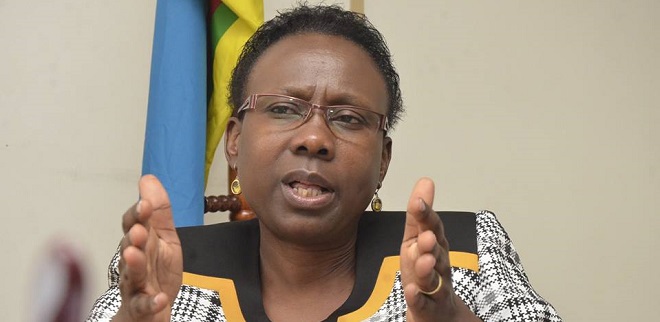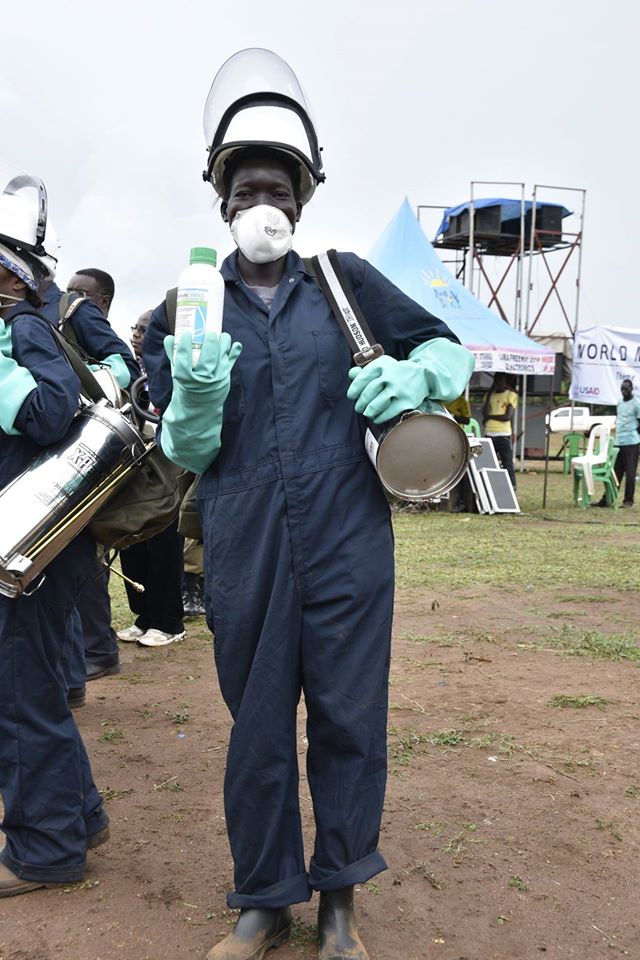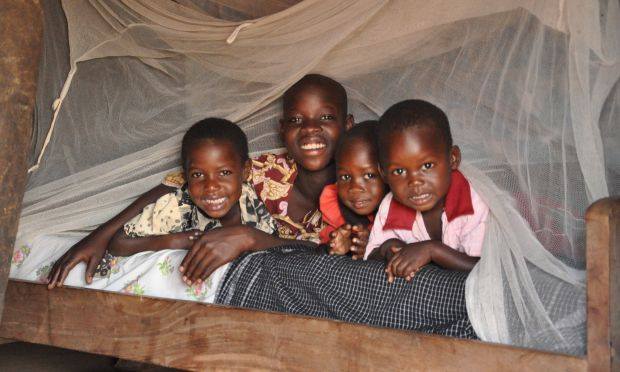
The Ministry of Health will spend $9m in an Indoor Residual Spraying (IRS) exercise to fight and manage a malaria epidemic in Northern Uganda.
Indoor spraying will be carried out in 10 epidemic districts this September. The districts were selected based on the malaria burden, giving priority to those with highest prevalence rates.
The spraying will be carried out in the districts of Kitgum, Amuru, Adaku, Apac, Gulu, Kole, Lamwo, Nwoya, Oyam and Pader. Indoor Residual Spraying is the application of a long-lasting, residual insecticide to potential malaria vector resting surfaces. It additional controls others household pests such as bedbugs, cockroaches, houseflies, lice, fleas.
According to a Ministry of Health statement signed by Prof Anthony Mbonye, Acting Director General Health Services, approximately $9m has been committed to the spraying exercise, with funding support from the government, USAID/Presidents Malaria Initiative and DFID.
Uganda ranks sixth among African countries with high malaria-related mortality rates, and has one of the highest reported Malaria transmission rates in the world.

Malaria is a disease caused by infection with malaria parasites after mosquito bites and remains the biggest cause of morbidity and mortality in Uganda. It contributes significantly to socio economic loses.
Uganda ranks sixth among African countries with high malaria-related mortality rates, and has one of the highest reported Malaria transmission rates in the world. It is estimated that 70,000 to 110,000 malaria-specific deaths occur every year; Malaria accounts for 9-14% of deaths among admitted cases; 20-23% of deaths among admitted children under five.
Last month, the World Health Organization (WHO) Country Office also hosted a Roll Back Malaria Partnership meeting with Ministry of Health that addressed the malaria situation in the country.
The meeting, attended by new Health Minister Jane Ruth Aceng, DFID, UNICEF and PMI, noted that up to 27 districts are currently experiencing a malaria upsurge. They include Koboko, Nebbi, Moyo, Adjumani, Amuru, Nwoya, Gulu, Oyam, Lamwo, Kitgum, Agago, Hoima, Bundibugyo, Amuria, Nakasongola, Kamuli, Busia, Serere, Kumi, Bukedea, Ngora, Butambala and Lyantonde.
Ministry of Health’s partners agreed to extend their current response plan to December 2017 and recommended that it should include at least two rounds of Indoor Residual Spraying.
They however recommended development of district-specific plans with proper gap analysis and district generated components for increased ownership.

The Commissioner Health Services in the Ministry of Health Dr. Patrick Tusiime commended WHO and partners for meeting to help address the malaria upsurge in the country. He promised to be an active member of the Roll Back Malaria Partnership (PMI).
Dr. Charles Katureebe the Malaria Advisor at the WHO Country Office called for strengthened malaria surveillance throughout the country. This, he said, could be done partly through operationalization of the weekly malaria status reports to guide the National Malaria Control Programme and partners to respond to any abnormal situation in time.
The partners agreed to involve the agriculture sector, the United Nations High Commission for Refugees, and the Office of the Prime Minister in resource mobilization to tackle the malaria epidemic.
 The Independent Uganda: You get the Truth we Pay the Price
The Independent Uganda: You get the Truth we Pay the Price


